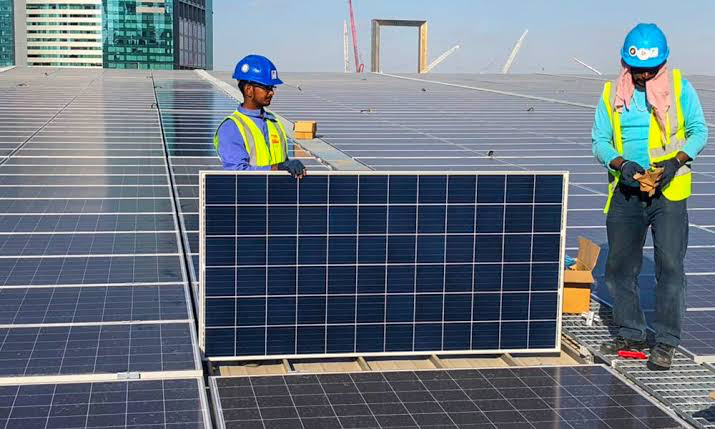In a significant boost to South Africa’s renewable energy sector, the National Energy Regulator of South Africa (Nersa) has reported the registration of an additional 124 generation facilities in the third quarter of its financial year, spanning from October to December. This surge brings the total number of facilities registered since 2018 to a remarkable 1,087. These new generators, predominantly solar photovoltaic (PV) plants, represent a combined capacity of 605 MW and an investment value of R7.8-billion, signaling a robust commitment to expanding the country’s renewable energy capabilities.
The majority of these projects, 122 to be precise, are solar PV plants with a total capacity of 604 MW. Additionally, two unique projects integrating solar PV generators with battery energy storage systems contribute another 1 MW of capacity. This trend underscores the growing interest in and the potential of solar energy as a cornerstone of South Africa’s transition to a more sustainable and secure energy future.
The Western Cape led the pack in terms of the number of registrations during this period, with 33 new projects totaling 16 MW and an investment of R222-million. However, the North West province stole the spotlight with the largest and most valuable projects. Eight projects registered here boast a combined capacity of 372 MW and a staggering investment of R3.54-billion. This notable concentration of large-scale projects in the North West highlights the region’s attractiveness for significant renewable energy developments.
Other provinces also saw noteworthy investments in renewable energy. Limpopo and Mpumalanga attracted large projects with 11 generators in Limpopo offering a combined capacity of 83 MW and R1.82-billion in investment, while Mpumalanga’s five projects totaled 77 MW and R1.3-billion in investment. Gauteng, KwaZulu-Natal, the Eastern Cape, the Free State, and the Northern Cape also registered new projects, contributing to the diverse geographic spread of renewable energy initiatives across the country.
Nersa’s report also revealed that the average investment cost for the third quarter stood at R12 817/kW, showcasing the substantial financial commitment to bolstering South Africa’s energy infrastructure. Notably, 86 generation facilities with a combined capacity of 568 MW and an investment value of R7.2-billion have been connected to the Eskom network. Meanwhile, 38 generation facilities are connected to municipal distribution networks, generating a total of 37 MW and attracting R500-million in investment.
Gaylor Montmasson-Clair from Trade and Industrial Policy Strategies highlighted the remarkable growth in renewable energy registrations, reporting that a total of 4,530 MW of renewables generators were registered with Nersa in 2023. This figure is almost triple that of 2022 and more than 50 times the registration recorded in 2021. The surge in registrations is largely attributed to the government’s decision to remove the licensing requirement for distributed projects, facilitating a smoother and more efficient process for renewable energy developments.
This influx of new power plant registrations underscores South Africa’s accelerating shift towards renewable energy sources, driven by both government policy and the commitment of private sector investors. As the country continues to embrace solar power and other renewable energies, it moves closer to achieving energy security, reducing carbon emissions, and fostering economic growth through sustainable development.



